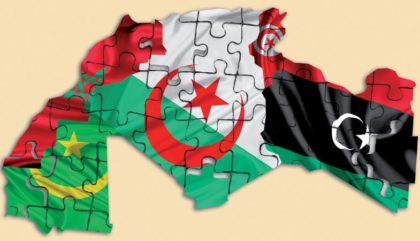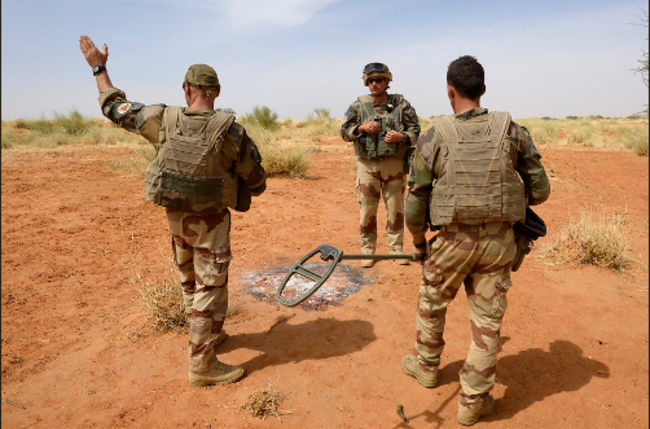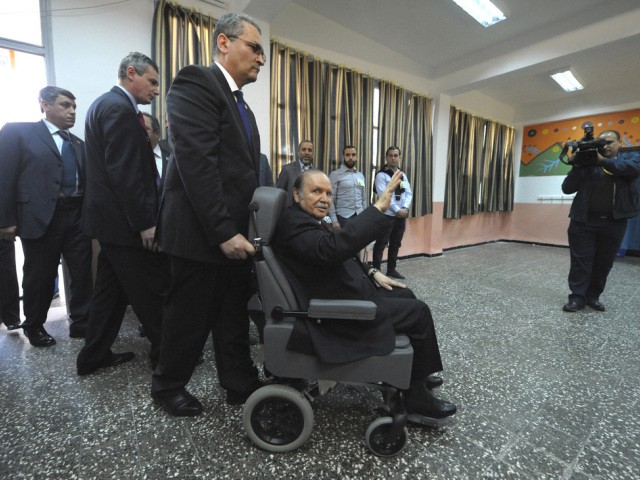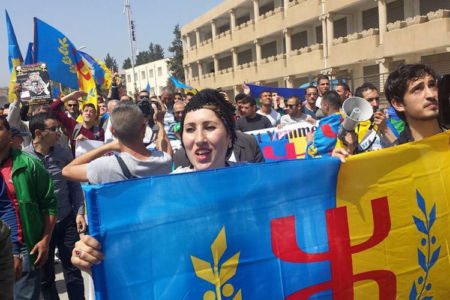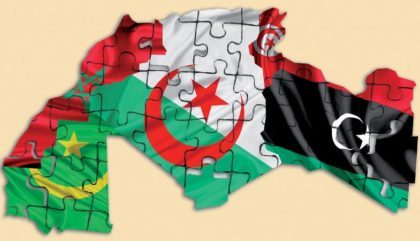 Algerian officials continue to issue statements calling for reviving the paralyzed Maghreb Union, a five-member regional grouping also comprising Morocco, Mauritania, Tunisia and Libya.
Algerian officials continue to issue statements calling for reviving the paralyzed Maghreb Union, a five-member regional grouping also comprising Morocco, Mauritania, Tunisia and Libya.
Recently, President Abdelaziz Boutefika sent messages on the 29th anniversary of the Union to Maghreb leaders urging collective efforts to reinvigorate the union.
Few days later, Algeria’s Foreign Minister said, during a visit to Minsk, that Morocco hinders the achievement of the Maghreb Union in a new diatribe that shows how the issue of regional integration has been transformed by the Algerian diplomacy into a sham principle.
Algeria’s responsibility in Maghreb Stalemate
There is only much talk and little action from the Algerian regime when it comes to the Maghreb. Algeria, the country that shares borders with all countries of the Maghreb, is urging efforts to build the Maghreb but at the same time maintains its borders closed with almost all its neighbours.
This closed-border attitude is reflective of a lack of a neighborhood policy in an increasingly integrated continent where collective efforts are the best means to countering trans-border challenges.
Algeria has kept its borders closed with Morocco since 1994. Despite multiple calls from its western neighbor to open the borders for the flow of people and goods, Algeria sticks to its decision in a bid to suffocate Morocco’s eastern region economically. The hidden agenda behind closing the borders with Morocco was an illusion nurtured by the Algerian regime that the Kingdom will succumb to their oil-funded hegemonic schemes in the region. Algeria, which hosts, arms and funds the separatist Polisario militia, has made of isolating Morocco the supreme goal of its diplomacy.
Deeming the Maghreb integration as a zero sum game, Algerian officials, who continue to be hostage to a cold war mentality, think that opening the borders will be more beneficial for Morocco, which has an attractive tourist market luring Algerian tourists. They also think that the free movement of goods will mostly benefit Morocco, which has a free market and a more competitive industry in contrast to Algeria’s full dependency on hydrocarbons as a source of revenue.
Using the security alibi to prevent the freedom of movement of people and goods in the region is flawed. Fighting terrorism and drug trafficking in the region should be a collective endeavor as national approaches have long proved their inefficiency. Yet, there is a silently brewing lack of trust between Sahel countries and Algeria on the issue of terrorism. Algeria, the native land of the leaders of most terrorist groups operating in the Sahel, has shown ambivalence in tackling the terrorist threats, which feeds suspicions and erodes trust in Algeria’s willingness to combat terrorism.
Algeria has also been the mastermind behind the Separatist scheme in the Moroccan Sahara. Algeria continues to fund and support diplomatically and militarily the Polisario militias which it hosts in the region of Tindouf since the 1970s. The Polisario have been using Algerian territories as a rear base for their guerrilla warfare against Morocco until the UN-brokered ceasefire agreement in 1991.
Cost of Non-Maghreb
Algeria’s hegemonic schemes, its closed-border policy and support for separatism in the Sahara have been factors that hampered the achievement of the Maghreb Union. The economic cost is tremendous. The low performance of this regional block is evidenced in an intra-Maghreban trade not exceeding 4.8% of the Maghreb’s trade volume representing less than 2% of the sub-region’s combined GDP.
If the five Maghreb countries were integrated, each would gain a minimum 5% rise in GDP, the World Economic Forum said in a report published in late 2017.
Deeper integration, including the liberalizing of services and reform of investment rules would have increased the per capita real GDP between 2005 and 2015 by 34% for Algeria, 27% for Morocco and 24% for Tunisia.
However, the reality and future prospects of the union are dim in light of an ailing Algerian leadership espousing an ideological anachronism and teetering on the verge of economic collapse. Today, more than 29 years after its creation in 1989, the north African regional grouping failed to achieve its main goals: a customs union which was due to be launched in 1995 and an economic market by 2000. The fact that the last summit of the five countries’ heads of states took place in 1994 is indicative of the stalemate in regional cooperation.
Seeking Alternatives
Algeria’s intransigence to adopt a win-win approach regarding the Maghreb based on genuine cooperation with Morocco and relinquishing support for separatists has pushed the rest of the countries of the Maghreb to seek regional integration alternatives elsewhere.
After the return of Morocco to the African Union with a landslide support, King Mohammed VI has rang at the 28th African Union Summit the alarm bell as to the state of immobility affecting the Arab Maghreb Union.
“While West African Economic Community countries are moving forward in ambitious integration projects and ECOWAS is offering a reliable space for free movement of persons, goods and capital, economic cooperation between Maghreb countries is at a low level,” he had deplored.
“If we do not act, by following the example of neighboring African sub-regions, the Maghreb Union will crumble in its chronic incapacity to live up to the ambitions of the Marrakesh Treaty, which gave birth to it 28 years ago,” the King had said.
Both Morocco and Tunisia are forging ahead with their application to join the ECOWAS. This membership will put a final nail in the Maghreb Union.
Tunisia has also expressed its willingness to join the Common Market for Eastern and Southern Africa (COMESA), in a move that further indicates deep frustration with the state of immobility affecting the Maghreb Union.
In light of the lack of willingness from Algerian officials to engage in sincere efforts to reinvigorate the Union along the lines of its founding Marrakesh Treaty, the Maghreb Union will remain one of the worst performing trading blocks in the world, pushing its member states to seek alternatives elsewhere.
